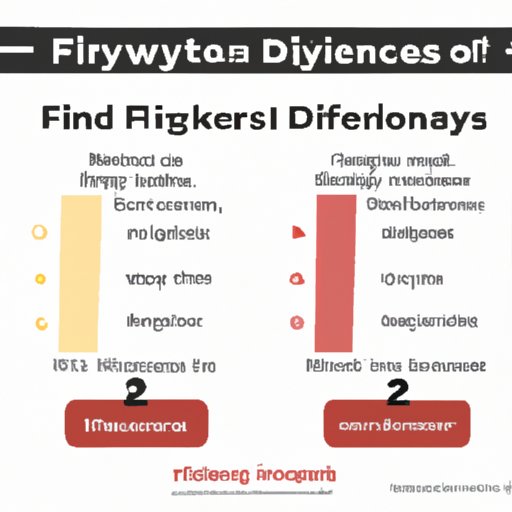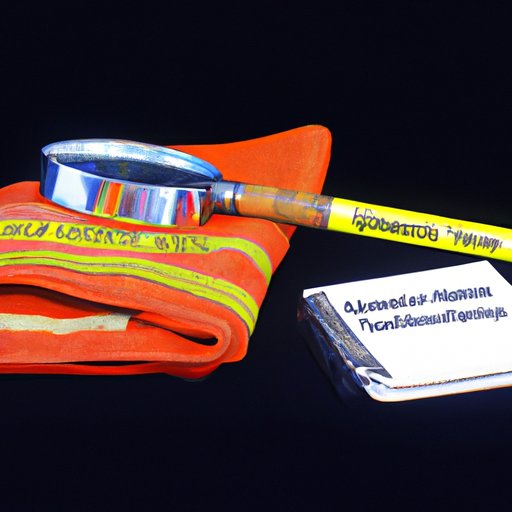I. Introduction
If you have ever been curious about how much a firefighter makes or what components make up their compensation, then you have come to the right place. This article will provide a comprehensive guide to firefighter salaries, including everything from the factors that impact their pay to common misconceptions about their compensation.
II. Understanding the Salary of a Firefighter: Everything You Need to Know
Firefighters are essential public servants who put their lives on the line for their communities every day. They work to put out fires, rescue people from danger, and provide emergency medical assistance. Because their job requires bravery and physical endurance, firefighter salaries are carefully considered and depend on various factors.
Factors that impact firefighter salaries include experience, size of department, advanced skills, cost of living in the area, and education. Additionally, the education level of firefighters can influence their wages, as those with higher education levels often have more job opportunities and increased pay.
Firefighters’ salaries are often compared with those of other public safety professionals, such as police officers and paramedics. However, even though these professions have similar job duties, firefighters’ salaries can differ significantly due to different employment classifications and their involvement in collective bargaining agreements.
III. How Much Can You Make as a Firefighter: An Honest Look
Firefighters are typically paid a yearly salary with the option to receive overtime pay and other benefits. According to the Bureau of Labor Statistics, the median annual wage for firefighters in the United States was $50,850 in 2020. However, this number can vary greatly depending on the factors previously mentioned.
Entry-level firefighters often earn between $30,000 and $60,000 per year, while experienced firefighters can earn closer to $100,000 per year. Different departments and organizations may offer additional bonuses and benefits, which can impact overall compensation. Firefighters may also receive additional compensation for working undesirable hours or receiving specialized certifications.

IV. Breaking Down the Firefighter Salary: A Comprehensive Guide
A firefighter’s compensation consists of a variety of factors, including wages, insurance benefits such as health, dental, and vision, vacation and sick leave, retirement plans, and other non-monetary incentives. These benefits and salary components can vary between departments and states.
Benefits such as insurance and vacation time can impact compensation by providing additional financial security outside of the standard wages. A similar pay range may be more or less attractive if the benefits provided by the employer are significantly different.
Bonuses, promotions, and higher classification are additional ways that firefighters can increase their wages. Firefighters may be given raises or bonuses for completing training, certifications, or taking on additional duties. Firefighters often seek additional training to improve their skills and increase their pay rate.
V. The Truth About Firefighter Pay: Debunking Common Misconceptions
Many people believe that firefighters make a lot of money due to their frequent overtime work and hazardous duties. However, excessive overtime use by firefighters is generally discouraged as it can lead to fatigue and reduced performance, especially in high-risk situations.
The cost of living in certain states, such as California and New York, can impact firefighters negatively, despite their relatively high salaries. Rent, cost of housing, and costs of goods and services often exceed the national average. Firefighters in certain areas may have reduced effectiveness in using their compensation in areas where it is more expensive to live.
It’s important to break down common misconceptions around firefighter pay to gain an accurate view of their compensation and working conditions.
VI. Is a Career as a Firefighter Financially Viable? A Detailed Analysis
A career as a firefighter can be financially viable and potentially lucrative. A firefighter can expect steady employment, benefits, job stability, and possibly early retirement due to their hazardous duties. An entry-level Firefighter can have a starting salary similar to that of other entry-level jobs. However, opportunities for advancement, promotions, and additional training can provide better long-term financial stability.
The financial cost of becoming a firefighter can vary and is dependent on training and certification as well as location. A four-year degree is not always required to become a firefighter, although it may be considered to fill higher-level positions in the department.
VII. Comparing Firefighter Salaries Across Different Cities and States
The salaries of firefighters can differ significantly depending on location, demand, and the overall economic environment of the region. For example, fire departments located near urban centers may have higher pay and more collective bargaining power. There may also be competition between fire departments within the same area which may affect entry-level earnings.
The National Fire Protection Association published a report outlining the average salaries of firefighters across states. The report showed that firefighters in states with higher costs of living, such as California and New York, had higher salaries compared to other states.
VIII. The Impact of Specializations and Experience on Firefighter Compensation
In addition to higher education, specialized training and certifications also impact firefighter compensation. Specializations such as hazardous materials or urban search and rescue personnel receive additional pay due to their unique skills and workload. Firefighters who participate in specialized training or work in higher positions for more extended periods earn higher salaries.
The level of experience of a firefighter can also impact their compensation. As firefighters gain experience over time, they have an increased understanding of emergency procedures and techniques. This experience leads to additional promotions and wages, which can significantly increase their earnings.
IX. Conclusion
Firefighters play an essential role in public safety, and their sacrifices and bravery should be acknowledged and appreciated. Firefighter salaries are dependent on several factors, such as experience, location, education, and specialties.
In conclusion, a career as a firefighter can be financially viable, stable, and rewarding. The financial benefits available to firefighters may vary, but compared to other professions with similar job descriptions, firefighter salaries are generally competitive.
(Note: Is this article not meeting your expectations? Do you have knowledge or insights to share? Unlock new opportunities and expand your reach by joining our authors team. Click Registration to join us and share your expertise with our readers.)
